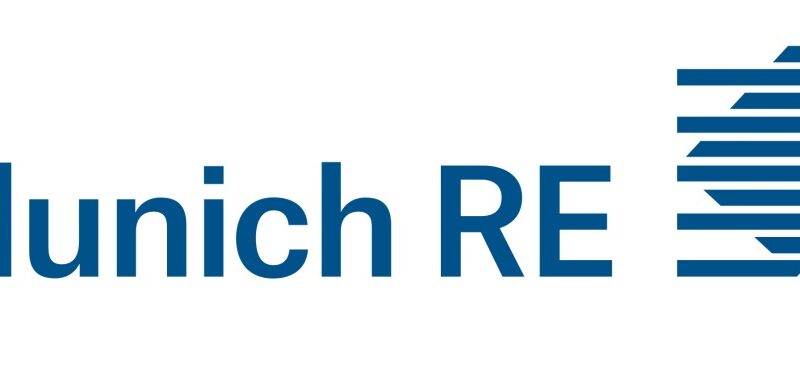By Favour Nnabugwu
The Covid-19 health crisis has plunged the world economy into uncertainty. Like several business sectors, insurance has not been spared.
Swiss Re’s projections show a decline in the global insurance market of 1.4 percent in 2020 after the increases of 2.3 percent reported in 2019 and 4.8 percent in 2018.
Moreover, this crisis comes at a time when the market is heavily strained by the resurgence of more severe and devastating natural disasters.
The persistence of low interest rates, the volatility of the capital markets and the low outlook for premium growth are all factors that show very little hope for a return to normal for several years to come.
Cost of the Covid-19 to the insurance market pandemic, According to Standard & Poor’s estimates by the end of June 2020, the cost of this health crisis for the global insurance and reinsurance market would be between 35 and 50 billion USD. The top 20 reinsurers alone will bear 14% of the bill, that is approximately 12 billion USD.
In addition to this heavy bill, market stakeholders expect a drop in profitability and a decline in operational performance. The annual accounts for the year 2020 should be adversely impacted at the level of assets, liabilities, results, revenues.
Impact of the Covid-19 on profitability of insurers
The decline in the results of the leading insurers and reinsurers for the third quarter 2020 has forced some stakeholders to revise downwards their growth prospects for the financial year 2020. Projections for 2021 and the following years are, for their part, put on stand-by or revised downwards.
Among the market leaders, Axa puts forward a projected cost of the crisis on its accounts of 1.5 billion EUR (1.75 billion USD). Allianz’s losses would amount to 1.3 billion EUR (1.52 billion USD). The German reinsurer Munich Re, for its part, forecasts an invoice of 800 million EUR (936.4 million USD) related to the current pandemic for the first nine months of 2020.
Impact of the Covid-19 on claim experience
As a result of the interruption of economic activities, the loss ratio has evolved either downwards or upwards depending on the class of business.
In general, all property and casualty classes of business reported a decline in claims, a trend mainly observed in motor and homeowner’s insurance.
This improvement has led some companies, especially the mutual ones, to grant discounts to policyholders and to pay out dividends even before the 2020 financial statements are closed.
The lines of business hit the hardest by the effects of the crisis are event cancellation and business interruption covers.
Other directly exposed lines such as credit insurance, assistance, travel insurance, health insurance and provident insurance also saw an increase in claims.
Non-physical damage business interruption coverage Insurance: event cancellation coverage Covid-19: Insurers and authorities up against the risk of a pandemic
The exceptional magnitude of the crisis forced the authorities to react. Indeed, to avoid a total collapse of the economy, governments had to take urgent measures to support the various market stakeholders, calling on insurers to participate in this surge of solidarity.
Consequently, some regulators asked and sometimes imposed on private insurers to examine with understanding the claims related to Covid-19. Others, on the other hand, have insisted on the respect of the guarantees as stipulated in the contracts, while requesting financial support from the insurance companies for the benefit of individuals and sectors affected by the crisis.
Nigeria
South Africa
Insurers are not required to cover business interruption caused by the pandemic when coverage is not purchased.
Kenya
The Kenyan regulatory authority IRA has ordered insurers to pay all pandemic-related claims.
Cima Zone
The Inter-African Insurance Market Conference, which includes 14 African countries, recommends fair treatment and protection of policyholders’ interests.
Morocco
The Supervisory Authority of Insurance and Social Welfare (ACAPS) has temporarily loosened certain prudential rules. It has also taken mitigation measures to enable the insurance sector to cope with the consequences of the pandemic. Thus, the losses avoided to the market by these measures are estimated at 700 million MAD (76 million USD).
France
The authorities have opted to establish a public-private partnership to find “new insurance solutions to this unprecedented crisis”. The French Federation of Insurers has thus submitted proposals to the government to build a system of protection against “exceptional disasters”.
Faced with exceptional economic costs related to Covid-19, estimated at 86 billion EUR (100.57 billion USD) at the end of 2020, insurers have taken several support measures including: a contribution of 3.2 billion USD to support and indemnify the most affected individuals and companies, a 2.5 billion USD grant to participate in the country’s economic recovery.
United States
In order to alleviate the burden of the pandemic, the United States, the country most affected by Covid-19, adopted a series of emergency measures, including the CARES Act.
The new provisions allowed the federal government to allocate approximately 3 000 billion USD in financial aid to businesses and individuals.
The insurance companies have provided 8.1 billion USD in assistance in the form of refunds, discounts, dividends and credits to motor insurance policyholders.
In most states, companies provide this support on a voluntary basis, although government authorities encourage insurers to take such initiatives. Cigna and New York Life, for example, have created a fund called the Brave Heart Fund. Its purpose is to provide financial support to the families of medical employees who have died from coronavirus.

